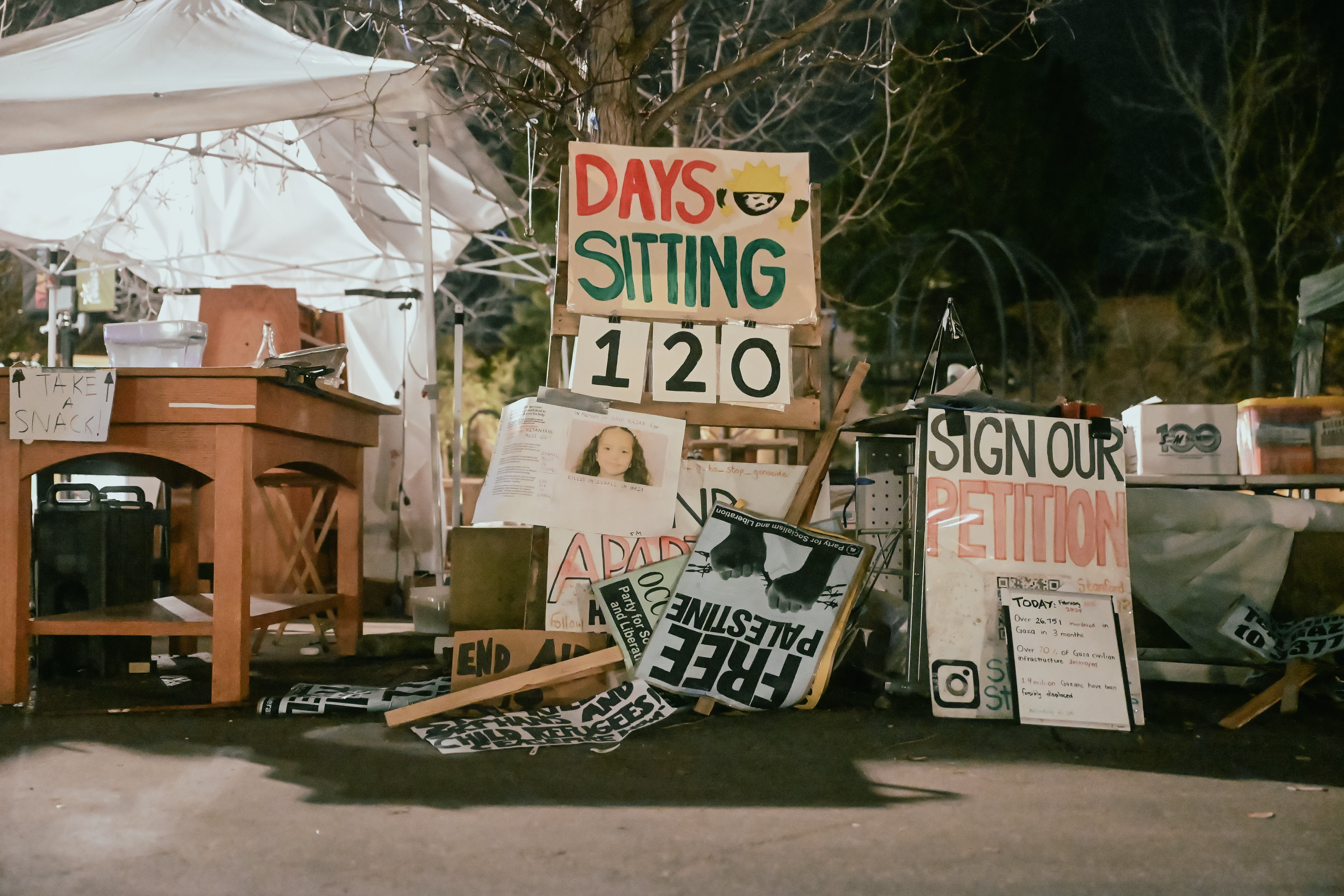Amid a wave of pro-Palestine protests and students arrested by police across college campuses nationwide, Stanford reiterated its protest policies in a Wednesday email sent to students and community members. The email comes ahead of Admit Weekend events, which start on Thursday, with University events dedicated to prospective and incoming frosh and transfer students.
“The university supports and encourages the exercise of your right to peaceful expression,” wrote C. Matthew Snipp, the interim provost for student affairs. “White Plaza is a designated free-speech area reservable by Stanford-recognized student organizations,” he wrote. White Plaza policies allow for tabling between 8 a.m. and 8 p.m.
Snipp also wrote that overnight camping, unapproved structures and other violations of policy will result in referrals to the Office of Community Standards (OCS), and could lead to arrests if laws are also violated.
Eighteen Stanford students who interrupted a Family Weekend welcome session on Feb. 23 were cited with misdemeanors by the Stanford University Department of Public Safety (SUDPS) and referred to University disciplinary processes. SUDPS officers and UG2 service workers removed the physical structures that comprised the pro-Palestine Sit-in to Stop Genocide earlier that month, following negotiations between organizers and administrators.
This past week, over 100 students were arrested at Columbia University, where protestors established an encampment of 50 tents and called for the University to divest from companies connected to Israel. Protests at the University of Texas Austin, the University of Southern California and Yale University have also led to arrests.
As protests spread across campuses, some politicians called for more national intervention. House Speaker Mike Johnson, R-La, called for President Joe Biden to send in the National Guard to quell the disruptions at Columbia.
On Monday, Biden said he condemned antisemitic protests, but also critiqued “those who don’t understand what’s going on with the Palestinians.”
Meanwhile, Snipp expressed hopes that on-campus protests do not escalate into conflict.
“Stanford continues to encourage reasoned discussion of contentious issues, with respect for the rights of others,” Snipp wrote.
